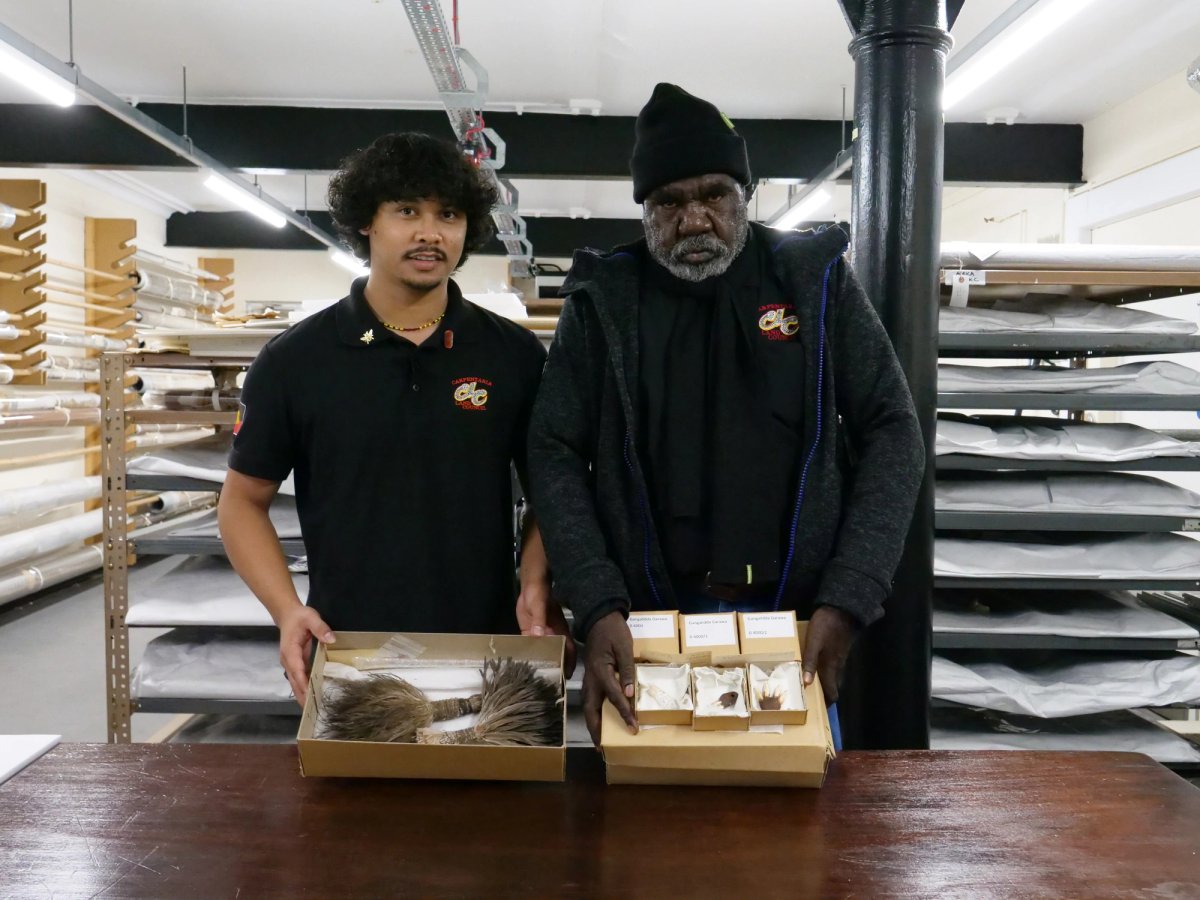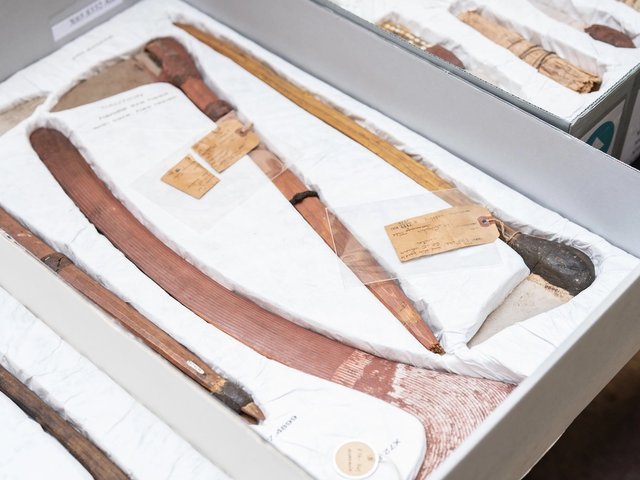Manchester Museum’s decision to return 43 sacred and ceremonial objects to Indigenous Australians has been welcomed by some culture professionals who say the move is a game-changing moment in the ongoing restitution debate. Many of the looted artefacts are thought to have arrived in the UK over a century ago.
The repatriation of the objects to the Aranda people of Central Australia, Gangalidda Garawa peoples’ of northwest Queensland, Nyamal people of the Pilbara and Yawuru people of Broome was announced in early October. A formal ceremony took place earlier this week at Manchester Museum, part of the University of Manchester, when items such as objects made from Emu feathers were handed over to the descendants of Indigenous Australians.
Professor Dan Hicks, the curator of archaeology at the Pitt Rivers Museum, University of Oxford, says that Manchester University’s restitution of these sacred and ceremonial objects is “a major step forward for Britain’s colonial museums in at least two respects: because it extends the process of return from human remains to ancestral material culture and because its return is apparently unconditional [no conditions].”
He adds: “It’s another example of how British non-national, local authority and university museums are playing an increasingly important role in developing equitable global dialogues, and crucially, actions on cultural restitution.”
The repatriation initiative is driven by the Australian Institute of Aboriginal and Torres Strait Islander Studies (AIATSIS), a government research and collections body that is seeking the return of thousands of other sacred Indigenous Australian objects held in UK institutions such as the Victoria and Albert Museum and the Wellcome Collection.
Christopher Simpson, the director of AIATSIS, told the Guardian that the items had ended up in Britain through “the brutal colonisation of our communities, whether taken by force or [by explorers] taking over our country”. Rebekah Pickering Wood, a lecturer in museum and heritage studies at Nottingham Trent University, tweeted that it is “great to see Manchester Museum return stolen sacred artefacts to Indigenous Australians”.
Esme Ward, the director of Manchester Museum, says in a statement: “By taking this action Manchester Museum will become more inclusive, caring and relevant to the communities it serves both locally and globally.” The gesture ignites the issue of restitution a year after the publication of the Savoy-Sarr report commissioned by the French president Emmanuel Macron, which recommends that African artefacts in French museums be repatriated.
UPDATE (22 November): AIATSIS says it has written to 42 collecting institutions in the UK regarding Aboriginal and/or Torres Strait Islander materials that they may hold; all of these institutions have responded. Of those, 13 have expressed a willingness to receive a return request and an eagerness to develop relationships with AIATSIS and/or Indigenous communities.



